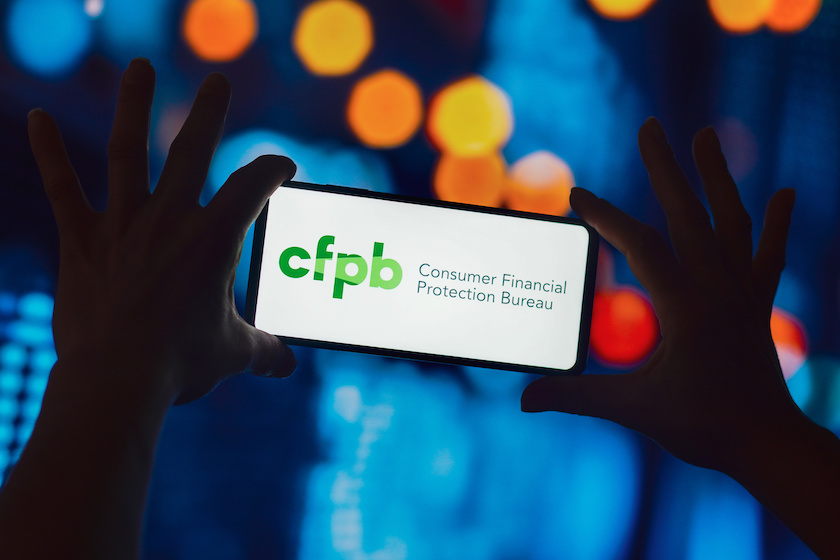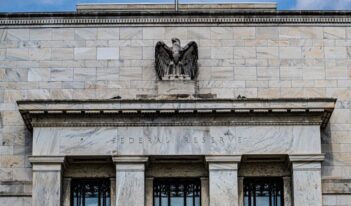
The CFPB has proposed the creation of a public registry to monitor agency and court orders against nonbank financial firms.
Last year, U.S. consumers filed nearly a million complaints with the Consumer Financial Protection Bureau (CFPB) over financial products or services. After reviewing these complaints, the CFPB has reported its concern about innovative financial products and services entering the market through nonbanks.
To monitor and reduce financial risks from new products and services offered by nonbanks, the CFPB has proposed the creation of a public registry of agency and court orders against these nonbank financial firms, which include fintech companies. The registry would include enforcement orders imposed for violations of federal consumer protection laws as well as state laws prohibiting unfair, deceptive, or abusive acts or practices. The CFPB would also require that each nonbank financial firm listed on such a registry identify an executive responsible for ensuring compliance with the agency or court order.
The CFPB argues that a public registry would support the agency’s ability to “identify, understand, and ultimately prevent harm” from nonbank financial firms. Given that no single federal or state regulator oversees all nonbank financial firms, and there exists no comprehensive list of agency and court orders against such firms, the CFPB currently must rely on other state and federal agencies to provide information about enforcement orders.
With a centralized list of orders, the CFPB suggests that it could better monitor the financial market for red flags—the existence of multiple state or federal violations against an individual nonbank financial firm—that indicate broader risks to consumers or the economy.
“The proposed registry will help the CFPB, the law enforcement community, and the public limit the harms from repeat offenders,” said CFPB Director Rohit Chopra, “Often you have an entity that violates the law in one state and picks up and moves to someplace else.”
In the United States, thousands of nonbank financial firms have emerged in recent years. One such nonbank financial firm, Chime, offers services exclusively through online banking. Through an intuitive digital interface, no minimum account balance requirements, and no monthly fees, Chime particularly attracts those underserved by the banking system, such as consumers with poor credit histories.
The CFPB estimates that 45 million consumers are considered credit “invisible” or “unscorable” by the three nationwide credit bureaus: Equifax, Experian, and TransUnion. Because traditional lenders often use data from these nationwide credit bureaus to make lending decisions, invisible or unscorable consumers can face reduced access to credit.
U.S. regulators have also recognized the promise of innovation and digitization by nonbank financial firms. Because many of these services require “expertise and economies of scale that most banks do not have,” nonbank financial firms have stepped in to fill a digital banking void, according to Acting Comptroller of the Currency Michael J. Hsu.
Despite these benefits, “the result is an increasingly de-integrated stack of banking services,” in which the introduction of nonbank financial firms increasingly removes the banking sector from regulatory oversight, suggests Acting Comptroller Hsu.
Similarly, Secretary of the U.S. Department of the Treasury Janet Yellen has cautioned that the entrance of nonbank financial firms into consumer financial markets “has not come without additional risks to consumer protection and market integrity.”
Nonbank financial firms, for example, are not insured by the Federal Deposit Insurance Corporation (FDIC), which protects at least $250,000 of a depositor’s funds at a chartered bank. Recognizing the growth of online and app-based lending, the FDIC has cautioned that consumers should verify with nonbank financial firms whether deposited funds are FDIC insured, even if nonbank financial firms advertise business partnerships with traditional banks.
Moreover, nonbank financial firms pose the same systemic risks to the economy as traditional banks through bank runs, which can occur when too many depositors withdraw their money from a financial institution causing the institution to become insolvent.
But critics of the CFPB proposal say that the agency should have no authority to enforce or publicize a consent order levied against a nonbank financial firm by a state regulator. U.S. Senator Pat Toomey (R-Pa.), for example, argues that the agency is engaging in nothing more than “name and shame tactics” and is encroaching upon “other agencies’ orders for violations of state and federal laws” for which it “has no jurisdiction.”
Despite an ongoing debate about the financial and systemic risks posed by nonbank financial firms as well as concerns about agency overreach, the CFPB expects to announce and launch a registration system that could take effect as early as January 2024.



